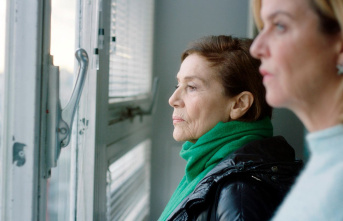Stark, direct, and baffling until the irritation. The qualities with which we usually assess the narrative of Agota Kristof (Hungarian, 1935–Switzerland, 2011), which deployed without any concessions in his famous trilogy, Claus and Lucas, also shine in their texts more obscure: his plays. Rather, the distilled writing theater, as before manifest as a novelist, She was a playwright of some fame in the seventies: his pieces were broadcast on the radio and people could instal new often in the theatres and cafés of Neuchâtel, the swiss town where he lived since the age of 21 she had to flee Hungary with her four-month-old and her husband, involved in the revolution against the regime prosoviético. But the impact was the publication in 1986 of the first part of his trilogy, The great binder, relegated to that facet to a second plane. Produced a total of 24 pieces and eight of them, the most significant and represented, just published for the first time in Spanish (Editorial Sitara), in two volumes, with a translation by José Ovejero.
MORE INFORMATION
Agota Kristof. A life without adjectives Agota Kristof: "I'm Not interested in literature" Children are not innocent,Kristof was very represented in Europe in the seventies and eighties. In Spain, not having been published until now, has been absent in the scenarios. Surprises that were not translated before. The same style cutter, without adjectives, with dialogue sharp as knives, that made thousands of readers all over the world surrender to his narrative. “Your theater is just as impactful. Both by its style as by its themes. Are all the themes that are then developed in Claus and Lucas: violence, political tyranny, the brutality, the exile, the loneliness. But there are also others that are not in the novels and which are of a currently unusual: the concern for the environment, the oppression of women...”, points out José Ovejero. “And furthermore we find a sense of unexpected humour. I never thought it had been a author fun until I started to translate these texts,” he adds.
The theatre of Kristof drinks clearly of Brecht. Most of his works are parables (political or social) dotted with songs in the manner of the German. For example, The monster (1976). A bug nasty terrorizes the inhabitants of a small village, but gradually end up loving you and satisfying all their needs (including human flesh) because in his loins grow some flowers heady scent: a parable of totalitarian regimes, with a surprise ending that we will not disclose here. In the comedy of kafkaesque Passed a rat (1972) there is a character called Bredumo which is an acronym of Brecht, Dürrenmatt and Molière. There are also echoes of Beckett: John and Joe (1972), the most popular and represented, two friends argue over a tenth of a lottery winner with dialogues that express the meaning of the words to absurdity.
beyond those influences, her writing is so rough that makes it different and makes a author's genuine. “The forest is full of hanged. But of course, the people only looks at young and pretty girls. Always saves to the same. Never a guy-old, ugly, babeante. Never!”, says one of the characters of an Epidemic (1975), set in a village suffering from a strange plague that leads their people to commit suicide in the mass, inspired by his own experience as an exile: some of his countrymen not endured being uprooted and killed. Astonishes how the author interspersed songs and verses from such harshness: simple poem that becomes devastating by the context. “When the city reaches this ridge, and shall cast myself to the people I cover it with spitting and insults, and for my head to burst against the cobblestones,” announces the protagonist of the key to The elevator (1977), a woman who is being mutilated slowly by her husband.
One of the reasons that explain the style as sharp Kristof —apart from its obvious direct nature— is that not written in his mother tongue. Dragged by her husband into exile in Switzerland, he had to get to work in a watch factory for ten hours a day. Kristof, who had always been in contact with the literature because his father was a teacher and she produced poems and theatre for the college, lived that period as a desert. “Desert social desert cultural (...) The monotonous cadence of the machines help to find the rhythm to his verses ( ... ), But soon abandoned the genre and the language to start writing French theater. The theatre, it was an exercise playful that allows you to become familiar with the language,” recalls Pilar G. Meyaui in the prologue of the Spanish edition. And to quote the author verbatim: “it Was more simple: the dialogues were similar to what I heard around me. Didn't have to do descriptions”.
Date Of Update: 28 December 2019, 01:00










